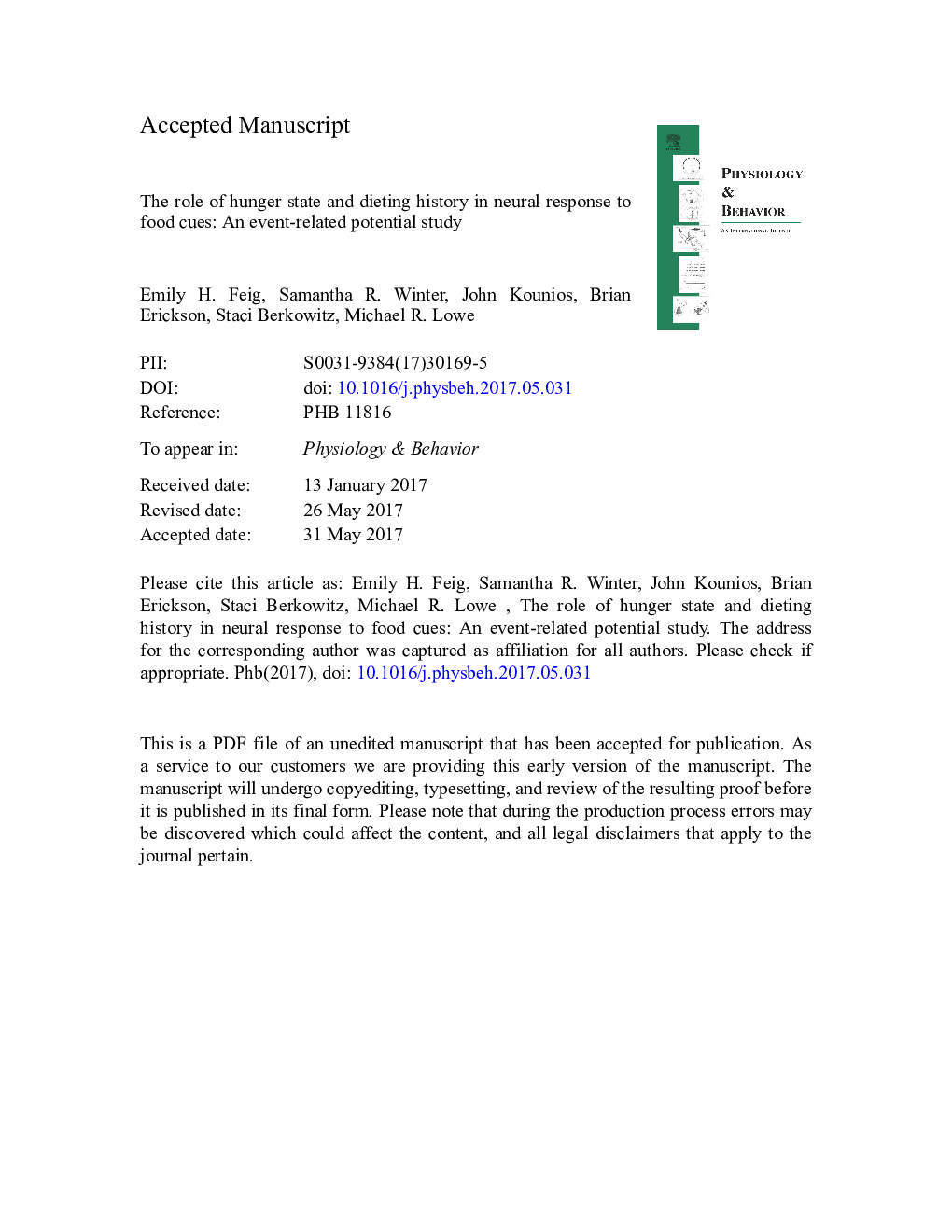| کد مقاله | کد نشریه | سال انتشار | مقاله انگلیسی | نسخه تمام متن |
|---|---|---|---|---|
| 5593633 | 1571140 | 2017 | 40 صفحه PDF | دانلود رایگان |
عنوان انگلیسی مقاله ISI
The role of hunger state and dieting history in neural response to food cues: An event-related potential study
ترجمه فارسی عنوان
نقش دولت گرسنگی و رژیم غذایی در پاسخ عصبی به نشانه های غذایی: یک مطالعه بالقوه مرتبط با رویداد
دانلود مقاله + سفارش ترجمه
دانلود مقاله ISI انگلیسی
رایگان برای ایرانیان
کلمات کلیدی
موضوعات مرتبط
علوم زیستی و بیوفناوری
بیوشیمی، ژنتیک و زیست شناسی مولکولی
فیزیولوژی
چکیده انگلیسی
A history of dieting to lose weight has been shown to be a robust predictor of future weight gain. A potential factor in propensity towards weight gain is the nature of people's reactions to the abundance of highly palatable food cues in the environment. Event Related Potentials (ERPs) have revealed differences in how the brain processes food cues between obese and normal weight individuals, as well as between restrained and unrestrained eaters. However, comparisons by weight status are not informative regarding whether differences predate or follow weight gain in obese individuals and restrained eating has not consistently been found to predict future weight gain. The present study compared ERP responses to food cues in non-obese historic dieters (HDs) to non-obese never dieters (NDs). HDs showed a blunted N1 component relative to NDs overall, and delayed N1 and P2 components compared to NDs in the hungry state, suggesting that early, perceptual processing of food cues differs between these groups, especially when food-deprived. HDs also showed a more hunger-dependent sustained ERP (LPP) compared to NDs. Future research should test ERP-based food cue responsivity as a mediator between dieting history and future weight gain to better identify those most at risk for weight gain as well as the nature of their vulnerability.
ناشر
Database: Elsevier - ScienceDirect (ساینس دایرکت)
Journal: Physiology & Behavior - Volume 179, 1 October 2017, Pages 126-134
Journal: Physiology & Behavior - Volume 179, 1 October 2017, Pages 126-134
نویسندگان
Emily H. Feig, Samantha R. Winter, John Kounios, Brian Erickson, Staci A. Berkowitz, Michael R. Lowe,
